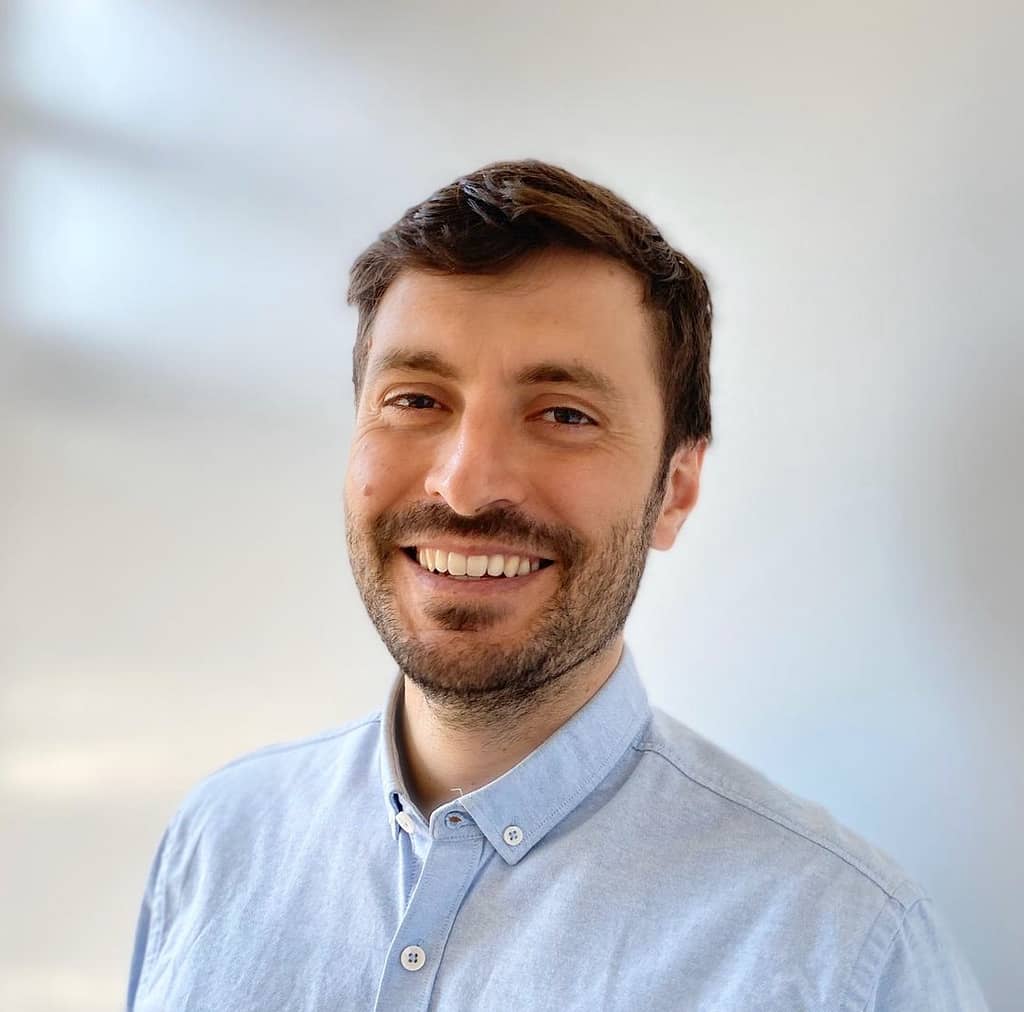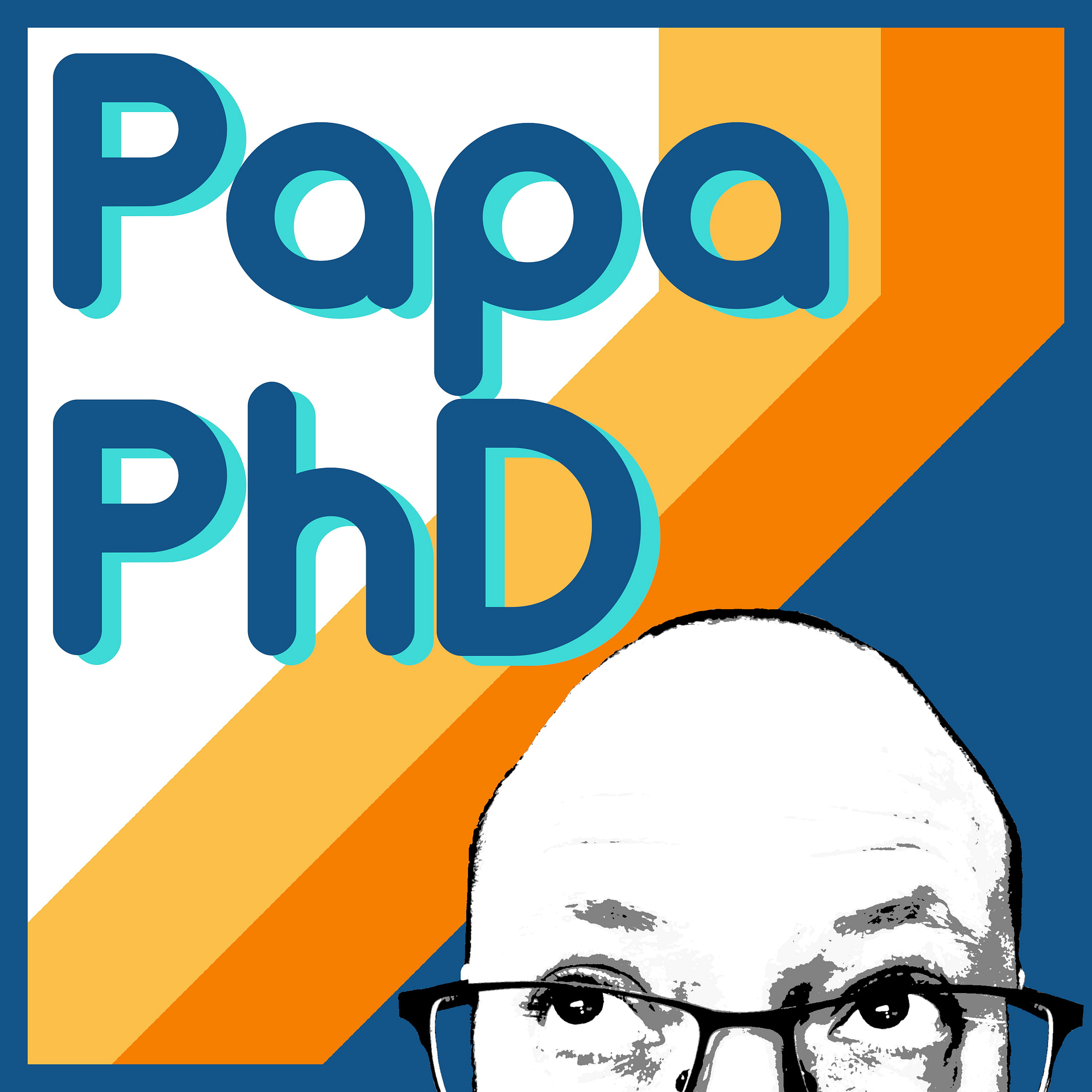If you ask me or anyone helping people with career transitions what the most powerful tool is in testing the waters and in growing your network when preparing for job hunting, you will most certainly hear these two words: informational interviews. Today’s guest has invested strongly in this exercise, so much so that he’s published a book based on his learnings and on the conversations he’s had about career exploration.

Matteo Tardelli describes himself as PhD looking into a leap into industry. He is currently a research scientist in biochemistry and medicine at Weill Cornell Medicine, and is the author of “The Salmon Leap for PhDs” a book where he explores this question of transitioning from academia to the private sector.
You can purchase “The Salmon Leap for PhDs: Swimming upstream: A transition from academia to industry” at:
https://www.amazon.com/Salmon-Leap-PhDs-Swimming-transition/dp/B08H6QDX3M
- The challenges and opportunities associated with going abroad for your PhD or your postdoc
- The knowledge gap graduates are faced with when first entering the job market
- Why informational interviews are not optional in your career exploration process
- Informational interviews as a tool to find out where you fit and where you don’t
- What salary benchmarking tools are available to you online
- Why being afraid of bothering others is blocking you from taking your next step, professionally
- The role of self-assessment tools in your job hunt and where to find some really useful ones
- Why you should tap into the hidden job market and how to go about doing it
- What you should double down on during the COVID pandemic in preparation for the return to normality
This episode’s pearls of wisdom:
“Once you push yourself out there and you just try to ask people for their time, thy will be more than happy to help and that was also, for me, something surprising, because I was like “I don’t want to bother these people,”, I didn’t feel confident in asking their time to talk to me. But actually, they’ve been through that as well, they were in your shoes before, so they’re really more than happy to help you out, so that was kind of surprising for me. ”
“Every person needs to prepare a little bit in advance, because you don’t want to show up and waste these people’s time. It’s important to prepare a little bit and to this extent, I will say, just try to write down some questions you have. Surely, an important one will be “what does your everyday job look like?” Also, depending on who you’re talking to, you can ask about the company. I think the point of the salary probably comes a little bit towards the end.”
“I think as academics in general we really tend to close ourselves down in these ivory towers or labs and, to some extent, this translates into also hanging out with your colleagues. And I think this is wrong, because you need to meet diverse people outside work – that’s really important.”
“In the past, actually, I really went back to the HR people that sometimes rejected me for some positions that I thought I was really fitting very well, and I really asked what was missing in my resume. And some of them replied to me and said, probably “your level of seniority is not enough”, ot this kind of thing. So you also understand there how to modify things a little bit.”
Matteo’s links: LinkedIn – LinkedIn.com/in/Matteo-Tardelli; Twitter – @Salmon_PhD.
You might also like the following episodes:
Chris Humphrey – Career Counseling: PapaPhD.com/73
Graydon Snider – Data Science: PapaPhD.com/62
Nathalie Ross – Regulatory Writing: PapaPhD.com/50
Zoë Ayres – Water Industry: PapaPhD.com/54
Need to communicate your research?
The research you produce is only as good as the way you communicate it.
Scientistt Studio is an exciting science communication company that brings your research to life through a variety of services.
From as little as £59, a summary of your work can be narrated, illustrated and animated, leaving you with an engaging video to share with the world.
If that wasn’t enough, as a podcast listener you can get 10% off any Scientistt Studio service using the code “PAPAPHD” when you order.
Click on the button below, explore the range of Scientistt services and use the promo code PAPAPHD. By doing so, not only will you be on your way to better science communication, but you will also be helping me produce the show:
Thanks for being a fan, happy listening and happy sharing!
